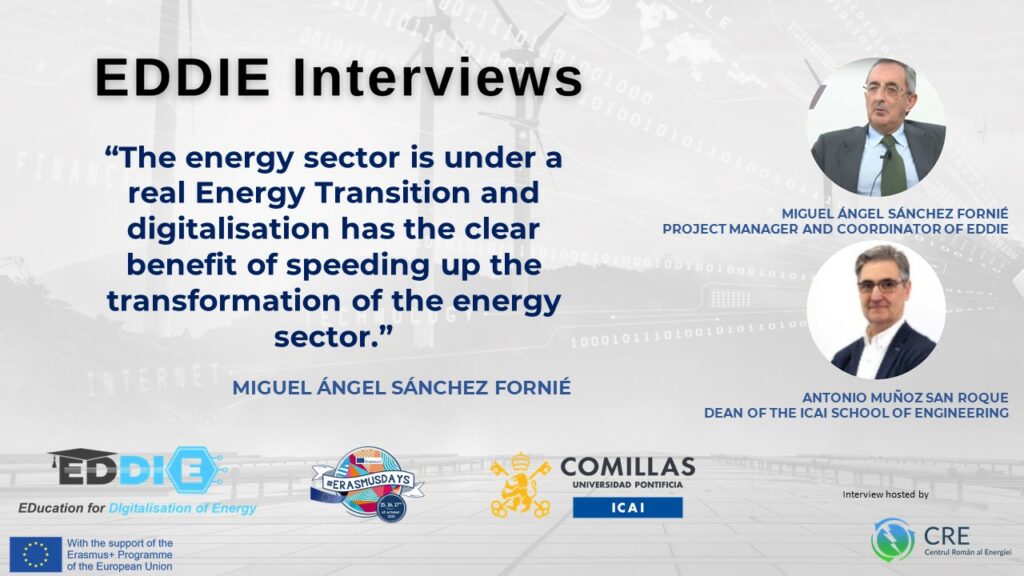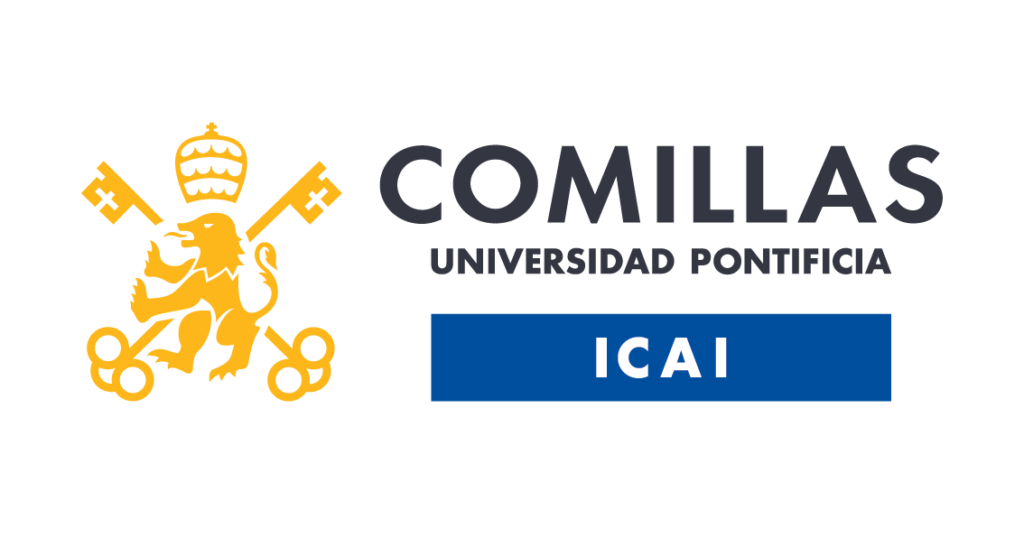Interview #1 - COMILLAS
First guest – Partner Comillas University
Miguel Ángel Sánchez Fornié – Associate Researcher at Institute for Research in Technology, belonging to the School of Engineering. Mr. Sanchez has over 43 years of experience at Iberdrola and currently he is the Project Manager and Coordinator of Eddie.
Antonio Muñoz San Roque – Dean of ICAI School of Engineering. Mr. Muñoz has a vast experience in intelligent systems.
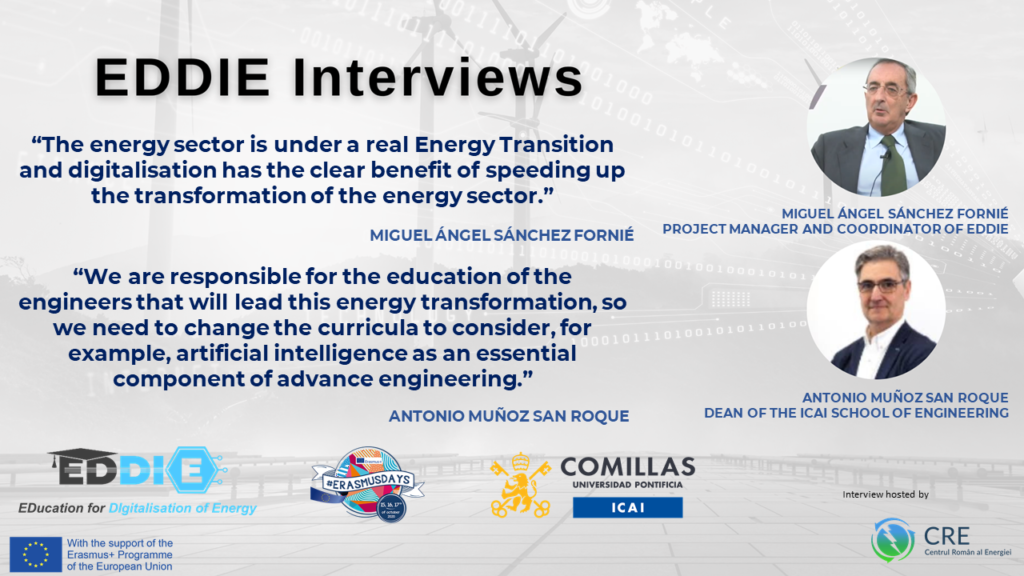
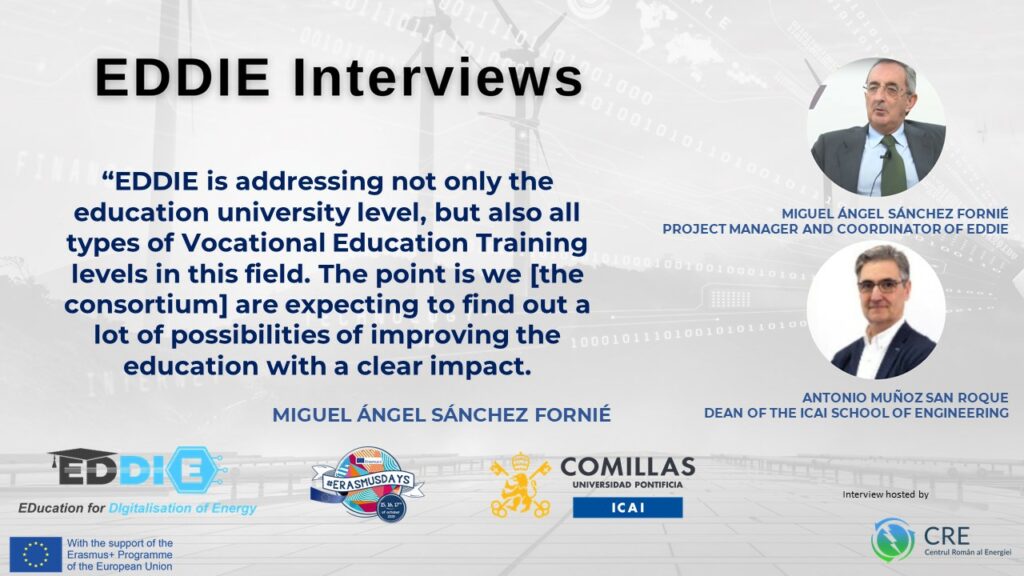
Mr. Sanchez, as EDDIE project manager, how the consortium defines digitalization of the energy sector and where the focus should be in this process?
The digitalisation is a technical and a technology question that has 3 basic parts: data, connectivity (telecommunications) and information processing. These are all related. But because this is a technology that is affecting all the sectors of our economy, I will address specifically the matter of energy sector. And rather than selecting a definition for the digitalisation of the Energy Sector on what are we really focusing on the Eddie project is the characteristics of having the Energy Sector at the fundamental transformation. We call that Energy Transition. This fundamental transformation basically is addressing how the humankind will address the sustainability of energy considering the challenges of the climate change.
So, the energy sector is under a real Energy Transition and digitalisation has the clear benefit of speeding up the transformation of the energy sector.
This is the focus and the concept that we are aiming at EDDIE Project. And of course, in our research work, we are concentrating on something which is becoming the fundamental thing – The Education. Energy and digitalisation at the basics are very difficult to understand, therefore education must be improved and updated. This is all included in our project.
Mr. Munoz, how can the Artificial Intelligence algorithms and Machine Learning techniques, your areas of expertise, help the process of digitalization of the energy sector?
Well, from my point of view the digitalisation of the energy sector has been supported by 4 main drivers: telecommunications – IoT, that had led to the forth industry revolution; the second one would be big data technologies – which are required to manage the huge amount of information that is generated every day; the third one would be the artificial intelligence techniques – including computer vision, natural language processing and machine learning algorithms – which are used for extracting valuable information from the data and the last one, I would mention, cybersecurity – which is a critical factor for the success of the digitalisation process.
Our intelligent system group at ICAI has been collaborating for more than 30 years with the energy sector in the application of the artificial intelligence and machine learning techniques to different business areas, as for example data driven maintenance – which is a very important field nowadays, smart grids, electricity markets, integration of renewable energy, and energy retailing. So, these could be some examples of how artificial intelligence can help the energy sector.
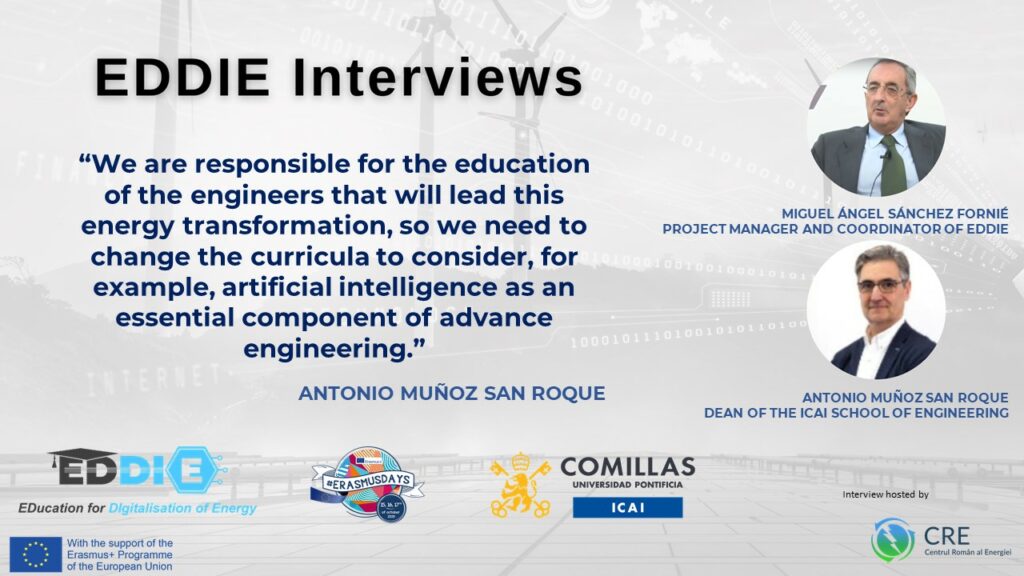
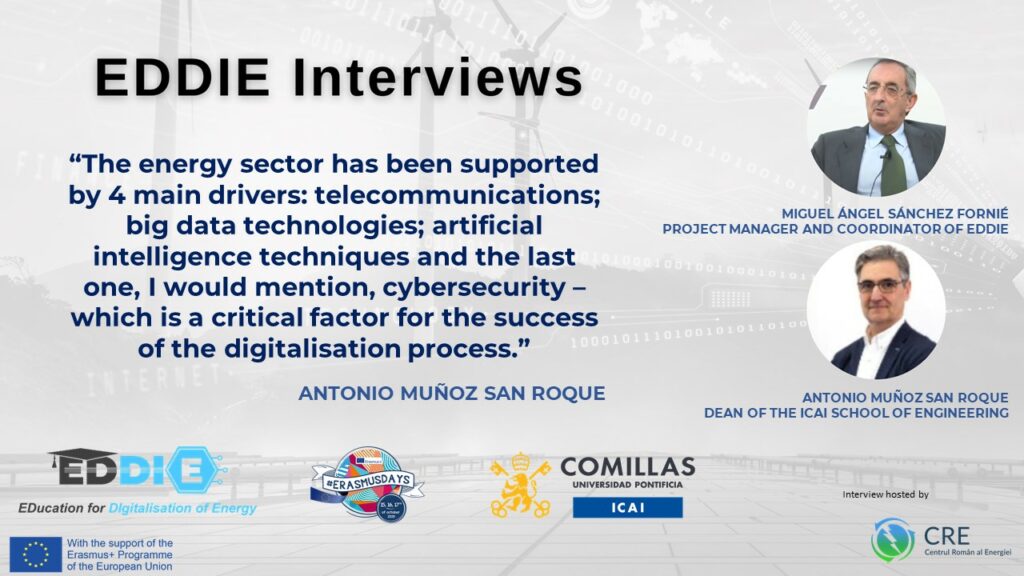
In the context of EDDIE, what do you think is the smallest change with the biggest impact that can be done in education institutions regarding the curricula? And why?
Mr. Sanchez: Your question is addressing the real content of the project by itself. I would hope that at the end of the project, as a result of all the research and all the investigation we are doing, the answer will be absolutely more accurate than the one I can give you based on my experience gained in the past years.
EDDIE is addressing not only the education university level, but also all types of Vocational Education Training levels in this field. The point is we are expecting to find out a lot of possibilities of improving the education with a clear impact. So, considering, again your question, is better to leave this for the end of the project.
Nevertheless, let me share with you, an experience. Coming from industry and currently working in university, I saw that there are opportunities related to digitalisation concept that we should be taking benefit of very soon and very fast. Our Master in Smart Grids was born with the simple process of knowing that we had an excellent degree in power engineering and we need to have the same students very well trained also in ICT, and especially in this case telecommunications. Of course, it is requested more effort from the students, but it is really addressing the facts of digitalisation. So, this is my clear example, as part of the answer.
Mr. Muñoz: As engineers in the schools we cannot ignore the digital transformation that our industry and our economy are undergoing. We are responsible for the education of the engineers that will lead this transformation, so we need to change the curricula to consider, for example, artificial intelligence as an essential component of advance engineering. The first step in our case was to offer machine learning courses with a practical approach to our students. These courses have been offered also to professionals in the sector with agreed success and impact. In fact, these courses gave rise to several research projects carried out by mixed, university and company teams. We have also developed the Smart Grid Master and we are combining the education of our engineers to other masters like Big Data, Interconnected Industry or Cybersecurity, and I’m sure that in the future these topics will be complete integrated in the engineering studies.
Because we do serious work, but we want to not always take ourselves too seriously, let me ask you about your hobbies. What are you doing when you are not working?
Mr. Sanchez: Every human being has to do many things, otherwise it will be too limited. I will not describe all these things, but in my personal activities I have priorities. First is the health, and I am not saying this because of the pandemic, but because health is so important for everybody. Part of health is sport, but also cultural activities. The second most important area is represented by family and friends, as you are not alone in this world and hopefully you have a very close circle of people you are enjoying to interchange many things of your life. And the third, of course, working and many other activities.
Mr. Muñoz: I like to travel with my family, even nowadays it is not very easy. Another activity that I enjoy is mountain biking. As I am living in the countryside of Madrid and there are plenty of mountain areas it is the perfect place for such kind of activity.
